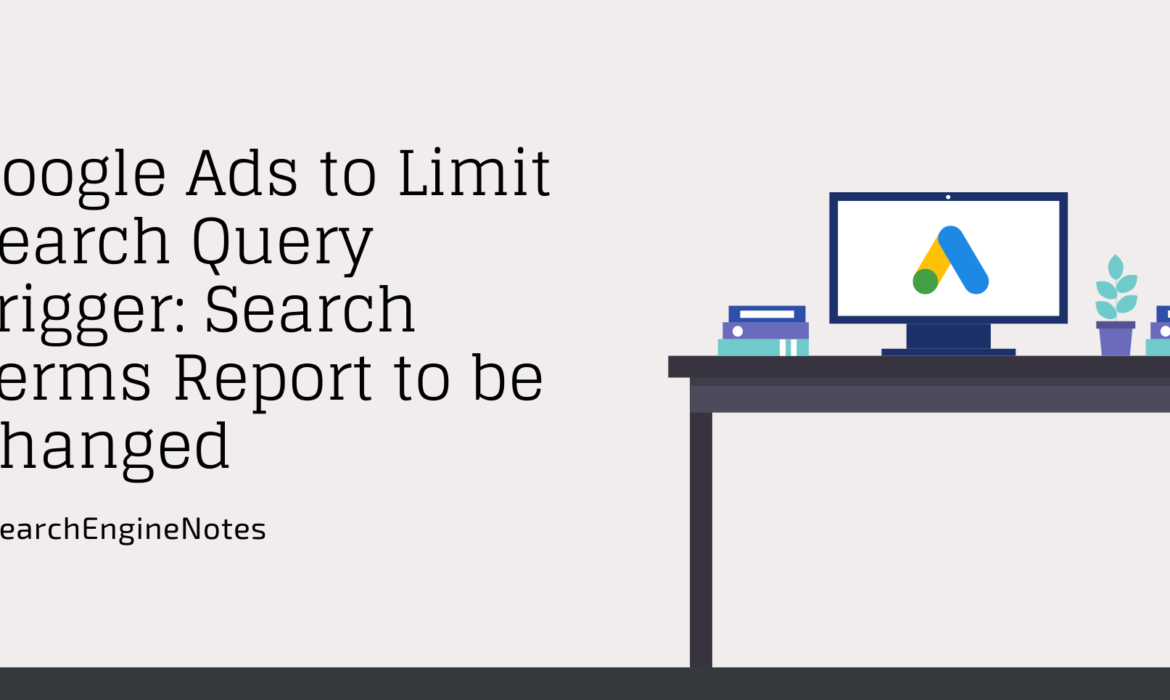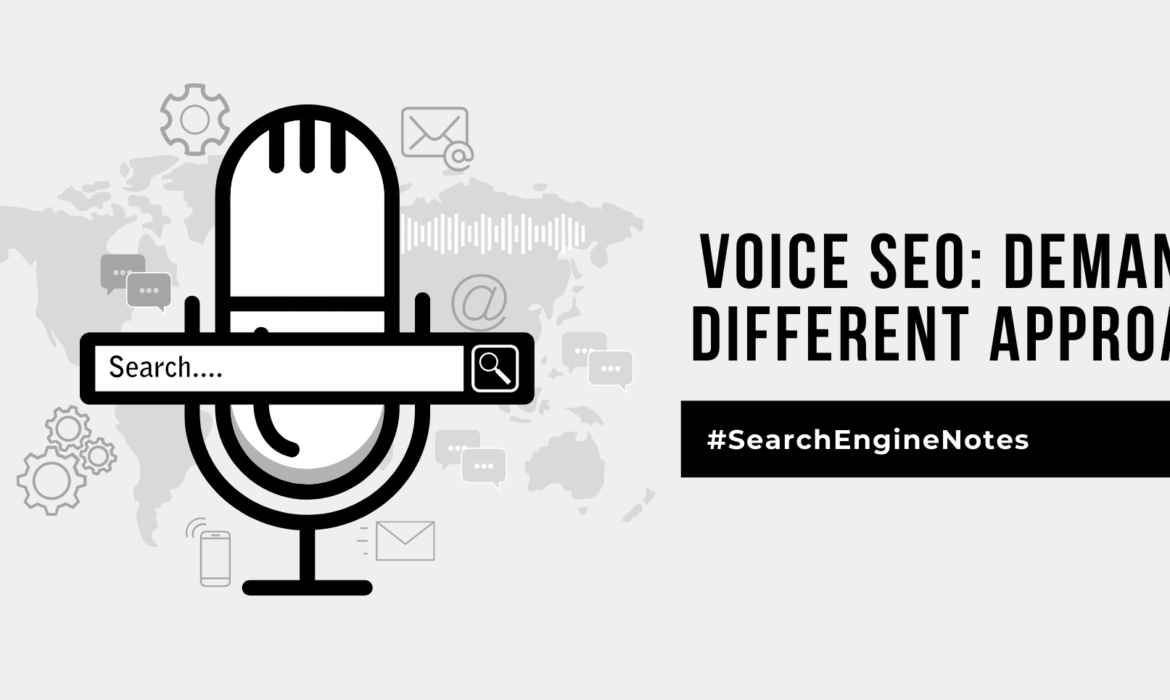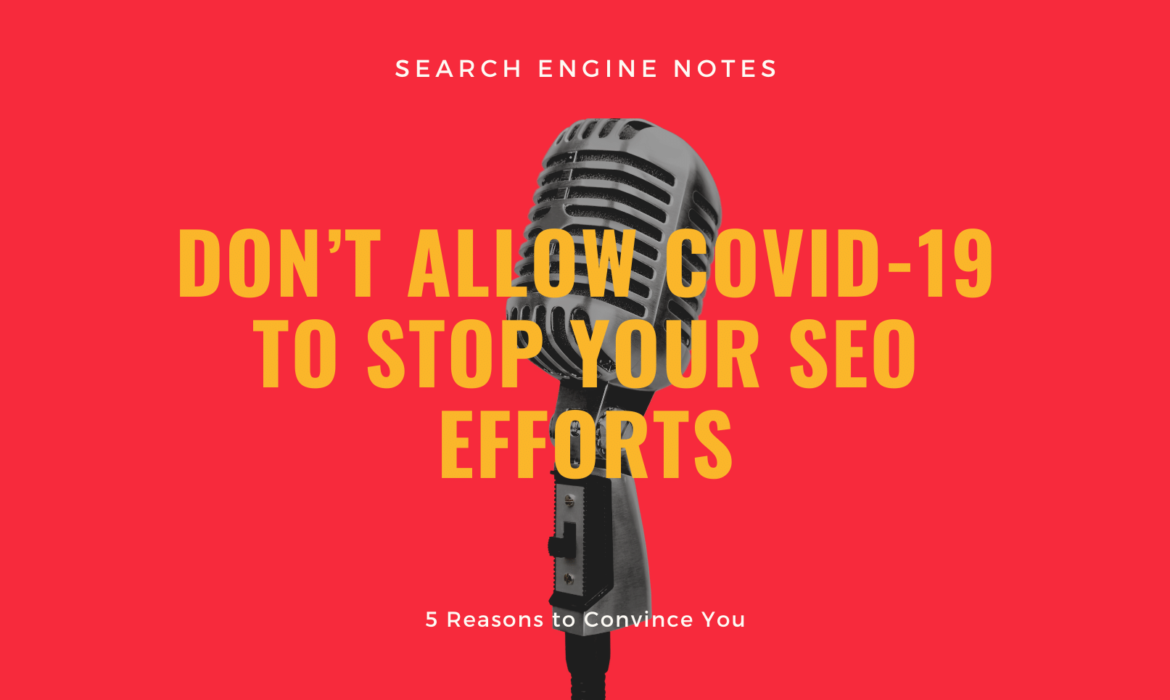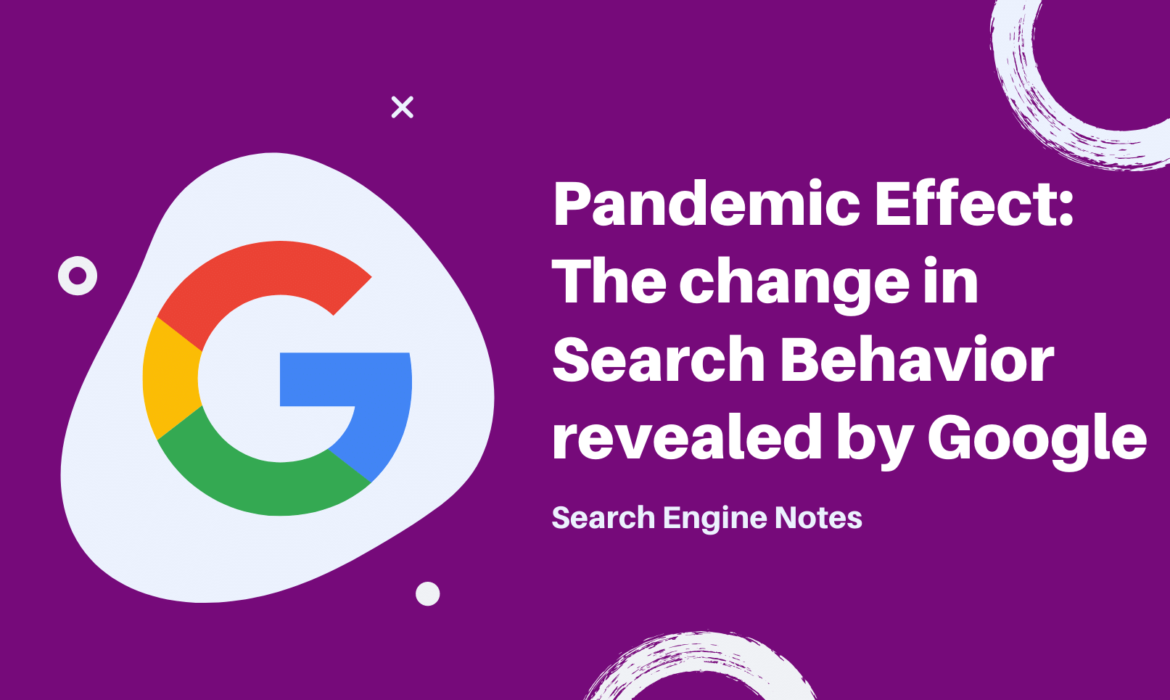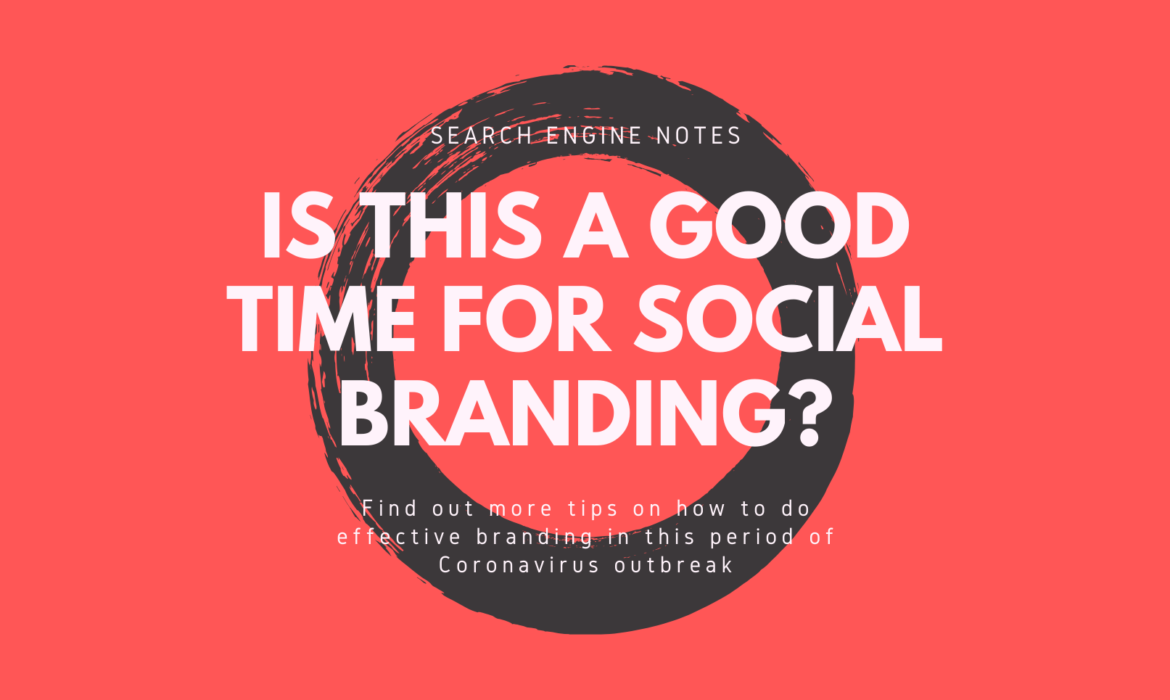Google Ads to Limit Search Query Trigger: Search Terms Report to be Changed
Google issued the following statement: “In order to maintain our standards of privacy and strengthen our protections around user data, we have made changes to our Search Terms Report to only include terms that a significant number of users searched for.”
The effect of this change will primarily depend on how Google defines ‘significant’. This will surely affect the campaigns and budgets of many advertisers. The range of impact is yet to be ascertained. Currently we can see search terms with only one impression or click present in the search term reporting. This is a common sight but we can guess that this will not continue in the near future. All we can do now is wait and see how Google approaches the change to the search terms report.
We have to respect the fact that Google wants to protect user privacy but we also have to consider the impact once the data is withheld. The purpose is clear, Google wants to prevent misuse the access of personally identifiable information which users may have included in their search queries. It is also to prevent advertisers from exploiting query data to identify users.
Google already has a limit in terms of query data in their Search Console for this particular reason. A users’ query triggers ads and whenever a user clicks the advertiser has to pay for that. Now if this data is taken away, advertisers won’t know what we can’t see.
If the change is limited to only sensitive queries which trigger privacy issues then it is fine. Our main worry is that the statement has a different essence and there are thousands of low-volume queries with absolutely zero privacy risk. We hope Google will take the best course of action as far as this change is concerned.
The main challenge will be in the area of negative query management. Advertisers will have far less control over the queries that trigger their ads. Over the period of time advertisers have gradually shifted their focus a lot from positive keyword management to negative keyword management approach to their keyword optimization. Search terms reports play an important role nowadays because of this.
Limiting access to this data will create problems for advertisers. They will not be able to determine which queries should be added to the negative keyword lists to make their campaigns more efficient. A single low-volume keyword will not have much impact but in aggregate the costs will add up. Advertisers will not be able to understand which words or phrases are working and which ones are not.
Voice SEO: Demands Different Approach
Everyone thought that voice and virtual assistants will take over the market by storm. A lot of products were launched to target the consumers in this category. You will be amazed to know that the most voice search queries are placed from smartphones till now even after a few years has passed after the first virtual assistant products were launched. The likes of Google Home and Amazon Echo range are yet to see success in this segment.
Google still believes that there is a potential in this market and they continue to do intricate research on human language and wants to improve their search results with natural language understanding. The following voice search study data shows how much gap exists in terms of quality between Google and Amazon.

While previous studies had shown a different picture, the above data show the Google Assistant (on Android smartphone) and Siri had the lowest percentage of unanswered questions (2%) compared with Alexa, which couldn’t answer 23% of questions. This shows an astounding improvement for Siri and Alexa is the only one which is lagging behind in this competition.
We know that various voice assistants rely on different sources of information for generating answers to search queries. This is because they provide different results for the same set of questions.
Google Assistant responds to local queries with content from Google My Business (GMB) and the local pack. Siri draws primarily on Yelp. Alexa relies on Bing, Yelp and Yext.
Areas of focus for Google optimization:
- Focus on Google My Business
- Use structured data
- Use content that are in conversational language
- Focus on common user questions and standard FAQs for your products and services
Areas of focus for Siri:
- Optimizing Yelp business profiles
- Choosing the correct business categories
- Adding lots of images (applicable for GMB too)
- Keyword Optimization in Yelp profile content
- Having a steady stream of reviews
- Responding to reviews on a regular basis
It is needless to say that if you are already in the habit of using best practices for SEO then you will do relatively well in results for voice search too. The key to optimizing for voice search is to write content for your users and their needs. To summarize, we believe that keeping your focus on the platform specific factors, voice or conversational optimizations (FAQs), creating the right content for your customers and paying attention to listings and reviews should fetch you good results.
Don’t Allow COVID-19 To Stop Your SEO Efforts
We are dealing with a global pandemic at this moment, one which has literally brought the global economy at a complete standstill. But is it wise for businesses to stall at this moment of crisis? Are those businesses clever, the ones which are hoarding their revenues and ducking in their bunkers to weather the storm?
Well businesses are shifting strategies as we speak. Some are hoarding cash and preparing for the worst and the others are trying to sail above the crisis. So a question might pop up in your mind right now that how can your business catch the right wind?
Well it might seem like fairytale and a whole lot of gobbledygook otherwise but we are here to break it down for you in simple terms. Business in reality can thrive in downtimes. All just boils down to the survival of the fittest. The winners will choose to invest heavily in search engine marketing.
We are just providing you with a few reasons why you should continue with your SEO efforts:
- Generate revenue more easily
Businesses that have a good cash flow can thrive and haul through an economic crisis. Liquid cash is the best solution for businesses to survive in the middle of a state of emergency where the business is dwindling day after day.
Opt-in email lists are the best marketing strategy that provides a good ROI. The only problem is that you cannot buy a list online which provides a reliable stream of revenue.
Search engine marketing is the best way to create such a list which taps into the interests and demands of your consumers.
SEO also helps in reach the consumer when they are looking for something they need. Both paid and organic marketing will help during this period as the mindset of the consumers is constantly in a state of need.
If overall sales of your products and services is down because of the pandemic you can avoid making more losses by focusing your efforts and revenue on a strategic search engine marketing plan which will help you to reach those that are still in a buying mood. Search engine marketing helps generate a lot of sales and leads for your business.
You have to simply cut the queue and leapfrog to the front so that you can cash out when a buying decision is made by the consumers.
- Quantified Results
In times of budget crunch it’s always best to focus on consumers who have more buying motive than the ones higher up the funnel.
Search engine marketing helps you target only these customers. Furthermore it also helps you understand if your efforts are bringing back results or not. A quick glance at the analytics will provide you with a clear picture of the sales and leads procured from your SEO efforts.
Search engine marketing in its very nature is reactive. Competent search marketers know when exactly to tweak keywords in order to cater only those customers whose search has a higher purchase intent than others.
All that matters during a period of crisis is that you exactly know where your Ad dollars are being spent and how effective they are in terms of ROI.
- A person in need, search indeed
Just before the lockdown started we saw a wave of panic buying among the common mass. People started stocking up essentials and soon we found all the malls, markets and even the local shops had run out of essential items.
Scarcity of goods will be the new normal now. Since people will avoid going out for groceries on a daily basis and risk getting contaminated.
So it will be normal for consumers to search for scarce goods online. They will also search for alternatives. So if your business caters to this section and appears in search results then you can take advantage of the situation.
Capitalizing on SEO early will be the key. Keyword costs for scarce items will increase over time as the demand for them rises.
- Demand will never die
Since it’s not the end of humanity, demand for products and services will be there as always. Both paid and organic search engine marketing works best for serving those consumers with unquenchable needs and wants.
It takes only a few moments to setup and run a Google Ads Campaign. Though search engine marketing may not be a one solution for all problems but it works for most cases.
We would highly recommend focusing on search engine marketing now especially if you haven’t done so yet.
- Stability is just around the corner
Life as we know it may or may not get changed a little but things will stabilize soon. There may be a new normal around the world which we have to accept eventually. Though it may seem hard to digest right now but we humans have been known to adapt to situations and go on with our lives.
In this supposedly new world, search engine marketing will still be relevant maybe more than now. It will be one of the most effective ways to reach a potential consumer.
Those who will invest in search engine marketing now will reap the benefits in years to come. A small but wise decision now will help your business to pull through the tough times that are yet to come. Search engine marketing is the most reliable and effective way to market your business in this period of crisis.
So drop those second thoughts and get started now.
Good Luck.
Pandemic Effect: The Change In Search Behavior Revealed By Google
Google in their latest update revealed that the search behavior is changing during the COVID-19 pandemic. They have concluded based on their data on search trends the top 5 ways in which the search behavior is changing.
Google has revealed this data to assist marketers and brands in being more helpful towards their customers. Since no organization is immune to the effects of the changing consumer behavior we suggest that everyone should take note of these insights.
Google has classified their findings about the change in consumer search behaviors in the following 5 broad categories:
- Assembling critical information
- Discovering New Connections
- Adjusting to the changes in their routines
- Praising everyday heroes
- Taking care of themselves and others

A detailed outlook is provided below:
Assembling critical information
The rate of consumption of online content has increased exponentially due to the quarantine measures taken by governments worldwide. Consumers or the common mass needs this to get by and adapt to the recent changes in their life.
It is suggested that businesses and organizations should have a clear line of communication with their customers with respect to when, where and how can their customers get the things that they need.
Google has been explicit that search interest has spiked for the following topics:
- Retail
- “can you freeze” different types of food
- Home delivery
- Mortgage rate suspension
- Short term work employee
Google also offers these recommendations:
- Acknowledge the new reality.
- Give people credible, detailed, and current information about your operations. Reinforce that you’re there to help.
- Regularly update communications across your website, blogs, social handles, and Google My Business page.
- Be flexible. Help customers with cancellations, refunds, and customer service.
Connections & Relationships
As everyone has been forced to practice social distancing, they are eventually discovering new ways and methods to cope with this. Making virtual connections and strengthening connections within the household is becoming the main areas of focus.
Search interest has increased in the following topics:
- “With me” videos on YouTube
- “Study with me” videos up 54%year-over-year
- “Bulk cook with me” and“disinfect with me” are also trending right now
- Multiplayer video games
- Virtual happy hour
Google’s recommendations for helping consumers:
- Look for ways to connect your customers, locally and globally.
- Consider if your brand has a role to play in creating or enhancing shared experiences, virtually or otherwise.
Adjusting to Changes in Routines
A lot of people have started adapting their daily routines according to their new lifestyle at home. “Do it yourself”, “stationery bicycles” and “dumbbell sets” has picked up interest according to Google Trends. Interest in late-night talk shows has also increased due to the fact that the hosts have started recording videos from their homes. This helps the common mass in relating themselves with the hosts and coping with their new way of life and accepting it gradually.
Google’s recommendations for helping consumers as they adjust to new routines:
- Let people know that solutions are available whenever, wherever.
- Assess when people need you most, whether through your own first-party data (like site analytics or email opens) or Google Trends and adjust your communications strategy accordingly.
- Update or publish often. There’s a need for content that informs, entertains, connects, and promotes wellness.
Praising Everyday Heroes
Search interest for “thank essential workers” has increased lately due to the fact that many people are risking their own health to continue their jobs. Health care workers, cashiers, delivery personnel, and many other people are fall in this category, and they deserve a lot of respect and praise for doing so.
Google offers these recommendations for helping consumers with supporting everyday heroes:
- Look for people who are helping, and find ways to support or celebrate them.
- Consider who the heroes are among your employees, your customers, or even your local community.
- Consider whether you have nonhuman heroes that can contribute, like your technology, your operational rigor, or your equipment.
Taking Care of Themselves and Others
People are trying their best to attend to their physical and psychological needs of themselves as well as the ones around them. Search interest has increased lately for activities that can aid one in dealing with boredom, anxiety, and uncertainty. People are searching for more for topics like “relaxation” and “puzzles” as well as virtual tours.
Google offers these recommendations for helping people find new ways to enrich their lives:
- Facilitate virtual collaborations with outdoor spaces and the cultural institution’s people yearn to visit.
- Join the conversation about home-based health and well-being.
- Pivot to platforms and formats that make sense for people staying home.
Google concluded its report by emphasizing the fact that the usefulness of businesses now will be a major factor as to how they will survive in the long run.
84% of US consumers say that their loyalty depends on how the companies act during this period of crisis (according to a survey conducted in late March).
YouTube: The Center Of All Attraction At The Moment. Should You Invest?
Many digital buyers and strategists are pulling their hairs apart to maneuver their brands through these trying times. One platform is emerging as a promising place for their Ad revenues.
The popular video sharing platform owned byGoogle, our very own YouTube has been showing some promising trends during recent weeks.
First of all, let us address the CPM trend. For those who are not familiar, CPM is a standardized metric for assessing media costs, it stands for “cost per 1000 ad impression”. It had been forecasted previously that CPM costs will drop as a direct result of brands and advertisers pulling the plug on their ad campaigns and businesses shutting down because of the implementation of quarantine lockdown by various governments across the world. Until and unless consumer confidence is restored we can not expect things to normalize soon.
There’s another group of experts who are hinting at something else as the reason behind this. A sudden spike in content consumption is providing more ad revenues than usual.
With most users stuck at their home and on their once loved now despised couch, the amount of time spent online and specifically on YouTube has increased exponentially. YouTube is a go-to entertainment platform for binging on videos of myriad categories and thus it provides an endless supply of content for average users. Thus people are spending more time on the platform and more and more videos are being watched thus increasing the overall opportunity of showing ads.
There’s another avenue opening up onYouTube as well. Since most of the big-budget studio productions are now out of action, Independent creators and Solo content specialists are grabbing the opportunity and cashing out on higher subscription and viewer rates.
Creators who are still able to cater to their subscribers in the midst of this nimble situation are the ones who are capitalizing on the shifting search trends. They can be more agile, adaptive and fluid and can better respond to the shifting demands of their viewers.
The ‘Davids have an opportunity to take a chunk out of the Goliaths’ share. Studio creators cannot do anything to keep their audience captive and prevent them from searching for other creators out there. Since people now gave more time to expend nobody can prevent this from happening.
To conclude, businesses are still skeptical about spending their ad revenue at this moment even though they are aware that users are more likely to get exposed to their ads now more than ever. We have to understand that they have to in fact we all have to deal with an unknown timeline. So it is advisable that businesses must balance between their offerings and their efforts to grab the consumers’ eye also keeping in mind the fact that they need to be extra cautious in order to pull through any future turmoil that are yet to come.
Is This A Good Time For Social Branding?
Brands are suffering in this period of coronavirus crisis. Quarantine restrictions are limiting customers from visiting local retail stores, logistical issues are diminishing e-commerce sales and manufacturing closures. The ongoing crisis is ramping up the pressure on marketers who are expected to ride this crisis wave. While some companies have high demand and relevancy for their products and services, others are struggling to get sales. This means you need to rethink your marketing efforts to make them more relevant.
As publicists, brand marketers, and agency owners, many of us are not prepared for such a crisis that affects the market on a global scale. Most of us have never lived during a pandemic, let alone personally experienced one. But we must prepare for an ongoing crisis. As marketers, we should not get bogged down.
In the agency world, how marketers handle this crisis will separate the pros from the noobs. Remember when everyone thought they could buy social media services for a few bucks because their kid in college could do it? Now this will reset the playing field.
This will be a time when it will suddenly become evident as to why some agencies charge a premium for their services. The bottom funnel marketers will keep on marketing through this as if nothing is going on. Their posts will be out of tune. Their scheduled tweets and pre-written content for campaigns will continue as if we were still living in a pre-pandemic online environment.
Strategy not only means knowing to post and when but also when to stay silent. Clients will pester and poke. They will ask the obvious, “Why should I pay you if you are not going to post anything?” But they should know that they are paying you because you know that shouting while nobody is interested is not going to work.
Coronavirus will impact every sector and industry, including marketing, public relations, and social media.
Here are some ideas which can bridge the gap in this period of crisis:
- Use Social Media to connect with your Audience
Every one of us is tackling this crisis in our own way and most of us are locked in our homes with our whole family. We are not allowed to do anything, especially things that most of us love to do viz, meeting up with our buddies, going for movies, eating at our favorite food joints, etc. This might seem unimportant but this actually takes a heavy toll on all our minds. So as a brand it is time to step up and show empathy instead of pushing products and services and bothering about sales only. More people are on social media now while stuck at home, scanning for updates, and trying to stay connected. It is a great time to show initiative as a brand and use your business to contribute to the needed and assist the helpless. Leverage your deeds in the correct manner on social media and promote your brand effectively.
- Being Online is the key now more than ever
It’s quite evident that search traffic and social media login times have surged significantly in the past few weeks. This trend is destined to continue because people are glued to their phones, tablets, laptops, and other gadgets constantly looking for updates and also crunching through online content like never before as they look for ways to pass time and keep their minds occupied as they are forced to stay at home. Anything online right now will be consumed more than ever before. This is the time to step up and not be hidden in the online landscape. It’s the perfect time to leverage search engine optimization (SEO) strategies to climb to the top of Google’s search engine results pages (SERPs)so that your business gets the maximum exposure online.
- It’s time to put a tick on pay-Per-Click (PPC) Advertising
PPC marketing can enable you to gain a competitive advantage as a brand as more and more people are at home with their eyes scanning everything online. Also to add a cherry on top of that cake, on an average CPC, has decreased by 5-6% across all sectors for the past two weeks. So it will let you gain a considerable market share without breaking the bank. Also word is CPC will continue to fall in the weeks to come.
- It’s time to leapfrog your competition
Nothing pays like staying on the front page of SERPs. It increases organic traffic to your website and helps your target audience to steer clear of your competitors. Climbing to the top of the list on the front page of SERPs is a time taking process. You need to incorporate strategic SEO techniques to quickly shift gears and move up the list. This is of utmost importance because you don’t want your customers to search with certain keywords and call up your competitors for the products or services that you are also offering. It is advisable that you continue to optimize your website and content on a daily basis and also not abandon your SEO efforts else a pause in these will result in you losing turf in terms of search results and end up losing a lot of business.
- Is your business ready for the long run?
TheCoronavirus outbreak will be a distant memory soon after a few months. After this phase goes away and the normal way of life returns, consumers will also surface with their normal purchasing behaviors. So pausing your marketing efforts especially SEO will have a compounded impact on your business in the long run. SEO is a long-term strategy that needs months if not years of disciplined efforts to fetch results. Theoretically speaking, the steps you take in SEO today will show results after 2-3 months. Thus pausing your SEO campaign now will result in your business losing valuable ranks in SERPs and you are destined to take a hit in terms of organic search traffic after things go back to how it was before.

